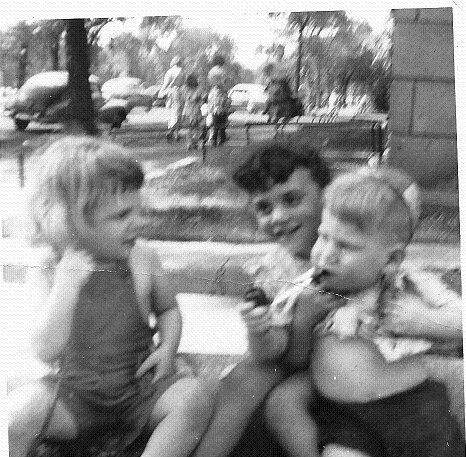By Larry Teren
Recently a college age friend told me about a school project he was required to do and asked me to participate. Specifically, he wanted to interview me about what it was for a baby boomer to grow up on television while the medium itself was being created. I told him that television as we know it started in 1947 and that I was not old enough to appreciate being entertained by it until the late 1950’s, several years past the birth pangs. Nevertheless, I was willing to cooperate and be interviewed.
He asked his questions over the phone during two evening sessions recording my responses so that he could better prepare his paper as accurately as possible. During the first session, I reminisced about the various shows that I watched from the late 1950s until the late 1960s ending with graduation from high school. My college friend was impressed because he said his teacher didn’t think we baby boomer old timers would be able to remember much detail. I assured him that I was not sitting in a rocking chair with a blanket wrapped around my shoulders as I thought of my answers.
He also said that the teacher told him that we would remember more abut the commercials and product endorsements than about the names of shows. He said she was not so much interested about the commercials. I told him that this was hogwash. There was a definite association with shows and commercials because in those days so many shows had specific sponsors. In fact, many commercials were woven into the show on the same staged set to make the viewer think that there was a sincere relationship between the actors and the product. Often the viewer thought the commercial was part of the show. On The Jack Benny Show, Burns and Allen, Dinah Shore, The Beverly Hillbillies, and Make Room for Daddy, the product sponsorship helped move the storyline along. No one felt they were being duped or their intelligence abused.
On the second session, the young fellow asked me if there was anything that was not included in his questioning that I felt needed to be brought out. I told him that it was important to know that we baby boomers grew up watching television at a time when there was no vcr’s or dvd’s or whatever newfangled digital recording devices exists now. If we didn’t see a show when it was first run, we understood there was a chance we would never ever see it. Until the mid 1950’s many shows ran more than 30 new episodes a year and quite often a different show would be broadcast as a summer replacement. It was only when the television networks saw that they could make more money by showing reruns that they cut down the number of new episodes and started the practice of repeat showings.
I never felt cheated if I missed an episode of a favorite tv show. If an opportunity to go outdoors and play in some sport with my friends came up, I did not hesitate to go. Television was filling time in my uncomplicated schedule of activities. If there wasn’t a chance to watch a particular show, there was always something new and different later to view. It never dawned on me as a 10 or 12 or 15 year old that years later there would be devices that would let me tape and watch shows at a more convenient time.
Did this have an effect on my enjoyment of shows as a kid? I don’t think so. In Chicago we had the three network stations, WGN, the major independent station, and Channel 11, the public station. Between these five channels, at any given time of the day there had to be at least one unobjectionable show to watch. It was better than doing homework. Tell that to your teacher, college boy.

One thought on “Baby Boomer Television Memories without a VCR”